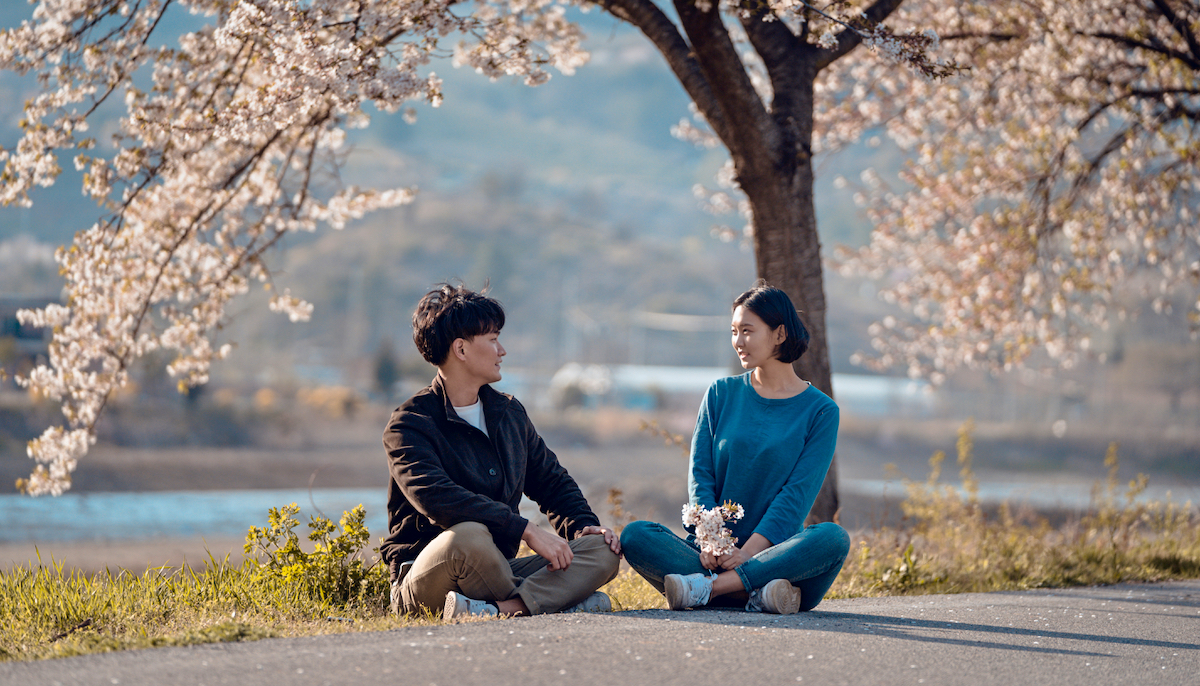Recently, some university students asked me to give a talk on romantic relationships and the spiritual path. I found myself overwhelmed: There’s so much to say about the best practices of relationship-work! Should I tackle good communication, respect, honesty, vulnerability, kindness, friendship…?
And then I thought, “How can I be giving advice about relationships when my own marriage has its ups and downs? On the ground, our marriage has little resemblance to the advice in books.” I reflected on how a typical disagreement plays out. First I — being well versed in what would be thought of as standard, good communication practices — would approach my husband:
“Husband, when you nod like you’re listening but then don’t do what I asked, I feel ignored and disrespected.”
This type of I-statement is supposed to help us take responsibility for our feelings while removing the kind of shame or blame that typically occurs in arguments, such as “You’re such a bad listener, and you obviously don’t respect me.”
Just as with the spiritual path, when we let go of control, we learn to love the person for who he or she is, flaws and all. That’s the beginning of true love.
Next, my husband is supposed to respond by way of a technique called “mirroring,” saying back to me, “Wife, I hear you saying that when I _____, you feel ______.” But this is how he actually responds: He gets a very thoughtful and concerned look on his face. Then he might nod slowly and utter, “Huh.” After a long pause, seeing how upset I am, he will say – as he ALWAYS does – “Sorry, baby. I will try to be better.” Then, usually, I explode, since he’s said those words so many times before.
We are of course not the only couple in which one partner thinks the relationship should be one way and the other lives, mentally, on another planet. That person doesn’t even think in terms of “working on the relationship” or see the need to read relationship books or see a marriage counselor. In fact, I venture that most couples are like us, with one partner quite process-oriented and the other not.
What advice could I give the students, then? After quite a bit of pondering and a great conversation with a friend, I realized something about relationships that really gets to the heart of it all. Here it is.
For many, the spiritual path follows a certain arc. When we first undertake the Buddhist path and practice meditation, we have this hope that this new spiritual path will fix our problems, make us whole, and help us eliminate our bad habits. We establish the aspiration that we will learn self-control, mastering our impulses. We have expectations that we will begin to achieve some kind of awakening. And we imagine a kind of perfection, that once enlightened we will never say a harsh or difficult thing, we will always be kind and generous, and we won’t suffer because we are now wise and compassionate.
At first, we actually do see some results. We become more connected and mindful of the present moment, and as a result our responses to life’s challenges become reflective rather than reflexive. We learn stillness and simplicity and begin to enjoy life more. Our relationship to stress changes: stress happens, but we’re not as upset about it as we used to be.
But after a few years or a few decades or maybe a few lifetimes of dedicated striving, we start to get the sense that our progress is terribly slow, given all the effort we’ve made. There are even times when we completely lose it, when anger or fear overtakes us even after all that practice. It’s disappointing.
So then we might think, “Well, I have tried very hard but this strategy is not working. Maybe I should try something else. Maybe I should try not trying so hard. Maybe I should relax. Can I do that? How far can I let go?” And thus begins a whole new path: one in which we discover, as we begin to let go, that it was the control, the expectations, the need to fix, the perfectionism, that was the root of our problem, the energy source of our self-disgust, frustration, and need to change. As we let go of all of that, things begin to open up‑miraculously, counter-intuitively. We start to really accept ourselves for who we are, finding our imperfections beautiful in their own way. Our hearts open to ourselves and therefore to others. And then we begin to find what we were really looking for in the first place: authentic love.
Marriage can follow the same arc, if we bring consciousness to it. At first we think, “This person will be exactly the thing to make life wonderful, to help me.” When we begin to see imperfections, some of us will try to change the other person or change ourselves in order to make things better. We exert control, we have expectations, we wish for perfection. But after years of trying, things between us don’t change much and we can get very frustrated. If we are wise, then we think, “Maybe I should try something different.” Just as with the spiritual path, when we let go of needing that person to be a certain way, when we let go of control, we find that as we do so we learn to love the person for who he or she is, flaws and all. That’s the beginning of true love, authentic love with another.
There are zillions of relationship-advice books out there but many share a failing: their readers, desperate in their relationships, are still trying to control things. They’re using the book to “make things better,” when the key is in accepting ourselves and our partners for who we are.
The arc of the spiritual path and the arc of the relationship path aren’t merely parallel; they are intimately bound together. As we practice our spiritual path more deeply, it inevitably changes the way we are in our relationships. Likewise, as we learn to ease up on our demands and needs from others, we learn that the spiritual path is not about fulfilling a need—a need to change what we don’t like about ourselves, for example—but about letting go of needs altogether.
*This perspective does not apply to relationships in which there is abuse (both physical and psychological), drug or alcohol addiction, or serial infidelity. If you are in a relationship in which one or several of these are present, please seek help.

